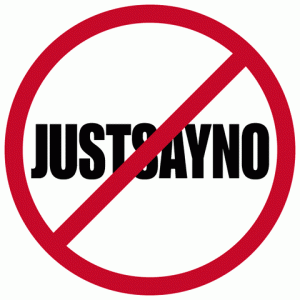 Young startups are especially vulnerable to the negative impact a bad decision has on the future of a company. A large corporation might have a bad product and recover just fine, but a startup depends on every action it takes being a positive step in the right direction.
Young startups are especially vulnerable to the negative impact a bad decision has on the future of a company. A large corporation might have a bad product and recover just fine, but a startup depends on every action it takes being a positive step in the right direction.
In a world where saying “no” is looked down upon, it’s important to remember that the future of a business depends on turning down opportunities when the risk is just too great. This doesn’t mean you should avoid any and all risk, but you should be doing everything you can early on to maximize every minute spent working on the startup.
So, what are the kinds of things it’s ok to say “no” to?
Cheap Gigs
There’s nothing worse than taking on a gig out of desperation only to find out that a job you really do stand to get ahead with was right around the corner. Your company can easily become tied up in a bad deal only to have to turn down better jobs as a result.
Feel free to say “no” to cheap gigs. Your startup’s time is valuable and this value needs to be established early on to avoid limiting your potential earnings later on.
When you start out working for small amounts, you can easily miss out on more substantial pay days. Remember, other companies are used to paying a fair market price for services. If you undercut the competition, you’re undercutting yourself and setting a precedent that will be hard to shake when word gets out.
Cheap Solutions
Being frugal and going with off the shelf products to solve business challenges is a popular solution for startups wanting to just get up and running without the hassle of planning before any actual work gets done. This sounds great on paper, and speed is indeed important. Unfortunately, those cheap quick-fix solutions end up costing you more in the long run.
Manny Ruiz of Intelligent IT recently offered Business Insider this advice, “When you have limited funds, people do two things. An operations person does the tech work, or a sales person does it, and you feel your way through. Don’t do that.”
Branded Swag
Buying tons of branded swag with the intention of getting the name out about your startup is a time-honored tradition businesses love to take part in. Giving out branded keychains, mugs, water bottles, and t-shirts might be all the rage on conference floors, but this extra cost really does little to market your business. The money you spend on branded clothing to give out at conferences could better be spent making demo units available to actual influencers.
Mark Cuban listed this as one of his 12 rules for startups in Entrepeneur.com. He mentioned, “A sure sign of failure for a startup is when someone sends me logo-embroidered polo shirts.”
Contracts that Lock You Down for a Set Period of Time
Locking your startup into a long-term contract can hinder your ability to grow in the future. Even something as simple as an extended lease might end up costing your business a lot should it outgrow the facility you start in.
Overnight successes are a rare occurrence, but they do happen. Getting out of a lease isn’t always easy, or cheap. The alternative is to build on to the space you have leased (if the contract permits it) only to hand the space back over once the term has ended.
This rule would also apply to contracts with clients that tie up your staff and restricts their ability to take on new, higher paying gigs.
Anything that Restricts Your Ability to Pivot
Being able to pivot is essential for any startup. This could mean giving your company the wiggle room it needs to shift its primary business focus or something as simple as giving yourself an out should a client decide to go with another vendor.
Pivoting around shifts in the industry is vital to the success and longevity of any modern business. Things change very quickly, and how well you can adapt could make all the difference in the world to your business.
Even established businesses suffer due to inability to change. Apple is a prime example of this type of situation. It faced an uncertain fate in the late ‘90s as Microsoft continued to evolve and Apple’s products remained largely unchanged for years. It wasn’t until Steve Jobs returned and change the way the company ran from the top down that Apple was capable of becoming the company it is today.
People Who Don’t Add Value
People will come along throughout the early stages of your startup that will promise the moon but fail to deliver. This is a fact of life for any entrepreneur, and many companies suffer through costly missteps that threaten to close the business.
It’s hard for a lot of first-time entrepreneurs to get used to saying “no” to bad deals. Either out of politeness or a misplaced sense of trust, saying “yes” too quickly could cause you to miss major milestones in the company’s development.
Startups value every minute the team spends. Even the closest and most tight-knit teams could benefit from the shedding of extra weight when it becomes apparent that a member is doing little to add value to the company. Your staff will appreciate an honest and stern approach to decision making as they realize it’s those types of decisions that keeps the doors open on your business.
Oh, and one last thing. If you plan on offering a sweet treat to your employees, don’t be afraid to say “no” to Twinkie knock-offs. You really do get what you pay for with those.
